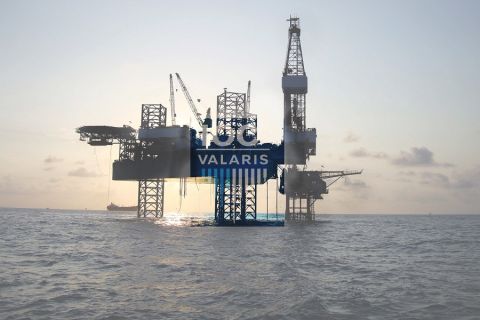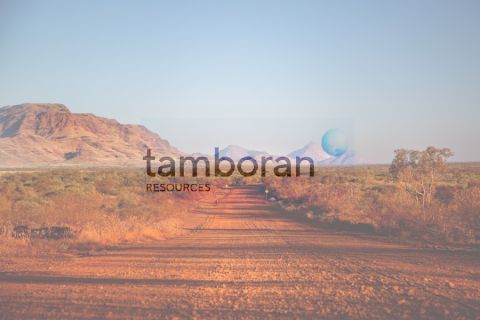By Mark Brownstein, Environmental Defense Fund
Oil and gas companies spend a lot of time and money reminding us just how much good they’re doing in the world. But according to a new Gallup poll released March 23, when it comes to fracking, the American people aren’t convinced.
Production is booming and prices are the lowest in decades, due in large measure to fracking and a suite of other technological innovations that have led a revolution in production from ‘unconventional’ sources of oil and gas in the U.S. In particular, the rapid increase in natural gas production is providing a boon to consumers and helping to reduce our dependence on coal, which in turn has helped reduce carbon dioxide and other pollution.
And yet the new poll shows that just 60% of Americans surveyed are either opposed or undecided about fracking.
Why? Because you can’t look at the news or your social media without confronting bad news from the places where major oil and gas production is taking place: Earthquakes in Oklahoma, water scarcity in Texas, air pollution in Wyoming, leaking pits of toxic wastewater in California. It’s all evidence that neither industry and nor regulators have a full handle on the real environmental and public health risks that come with unconventional oil and gas production.
And with rare exceptions, the industry never misses an opportunity to fight better oversight. In fact on the same day the poll was published, oil and gas industry lawyers were in court to block sensible federal regulation of fracking on public lands, and their lobbyists were railing against Pennsylvania’s efforts to improve oversight of the industry’s water and waste management practices.
The industry ought to be concerned about all this. But mostly, they have been dismissive of the problems they face in the communities where they operate.
It’s true local activism can sometimes take an alarmist tone that’s easy for some to write off. But it is a big mistake to think the majority of concerned voices speaking out today are coming from the lunatic fringe. In my experience, many of them are actually supportive of domestic oil and gas development. But they are understandably concerned about an anything-goes mentality when it comes to air and water pollution in their neighborhoods.
For most of these folks, the goal is simple: They want meaningful oversight and real accountability. But if they can’t get that, they’re a lot more likely to start drawing lines in the sand. Just ask the citizens of Denton, Texas, where 59 percent of the voters checked the box to ban fracking altogether.
The considerable public relations campaigns funded by the American Petroleum Institute and America’s Natural Gas Alliance have earned the industry a core constituency in support of ‘fracking’ but 60% of Americans aren’t buying it.
So, here’s an idea: Rather than doubling down on a strategy of fighting all manner of reasonable regulatory oversight, let’s choose a different path. For starters, how about we pick an issue—methane pollution, for example, and work together to get a sensible regulatory framework in place?
Instead of betting that the good news economic story absolves it of the need to be responsive to community and environmental concerns, the oil and gas industry should embrace oversight and accountability as necessary to earn and keep the public’s trust.
Perhaps then, those who are undecided, and those who are opposed will have reason to reconsider their views.
Mark Brownstein is the associate vice president and chief counsel of the Environmental Defense Fund’s U.S. Energy and Climate Program. This post originally appeared on EDF’s Energy Exchange blog.
Recommended Reading
Utility, Clean Energy Company Allete to Go Private in $6.2B Deal
2024-05-06 - The Minnesota-based utility said on May 6 it agreed to be acquired by a partnership led by Canada Pension Plan Investment Board and Global Infrastructure Partners.
Valaris’ 1Q Sets Positive Tone for Offshore
2024-05-06 - Coming out of first-quarter 2024, drilling contractor Valaris expects a sustained upcycle for the offshore drilling industry supported by demand growth, OPEC+ production cuts and supportive commodity prices.
U.S. Shale-catters to IPO Australian Shale Explorer on NYSE
2024-05-04 - Tamboran Resources Corp. is majority owned by Permian wildcatter Bryan Sheffield and chaired by Haynesville and Eagle Ford discovery co-leader Dick Stoneburner.
1Q24 Dividends Declared in the Week of April 29
2024-05-03 - With earnings season in full swing, upstream and midstream companies are declaring quarterly dividends. Here is a selection of dividends announced in the past week.
Analyst Questions Kimmeridge’s Character, Ben Dell Responds
2024-05-02 - The analyst said that “they don’t seem to be particularly good actors.” Ben Dell, Kimmeridge Energy Partners managing partner, told Hart Energy that “our reputation is unparalleled.”





